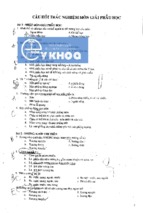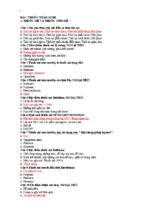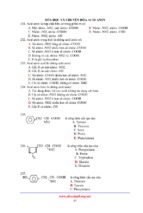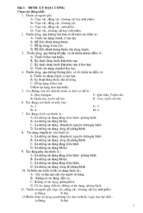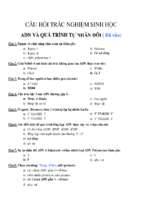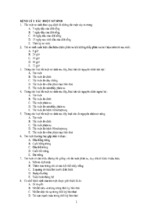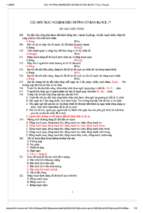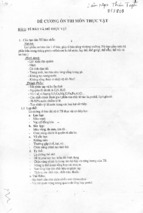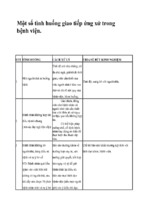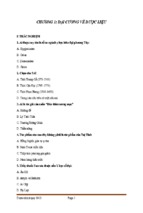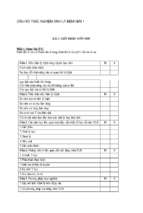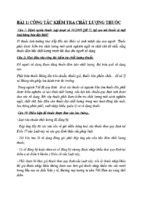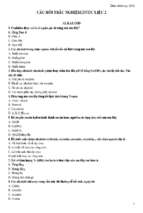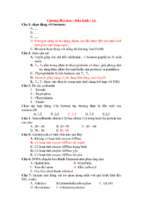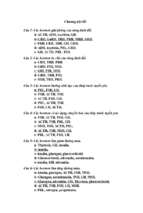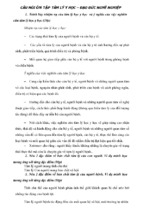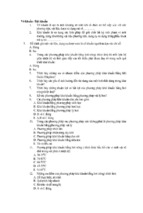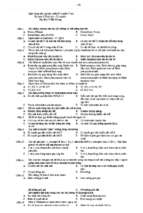Dr John Rudd, a general practitioner, has telephoned his friend and colleague,
consultant physician Dr Alan Young.
Dr Rudd: Hello, Alan, it’s John... John Rudd.
Dr Young: Oh, hello, John. I haven’t spoken to you for quite a while. How are you?
Dr Rudd: I’m fine, thanks. Are you well?
Dr Young: Yes, thanks. How can I help you?
Dr Rudd: I wanted to ask you about a man I’ve been seeing in the surgery for a couple of
months now - frankly I’ve become quite worried about him.
Dr Young: Have you? What's the problem?
Dr Rudd: Well, he’s a 32 year-old accountant named Richard Baker. He came to see me a
couple of months ago complaining that he was feeling tired, lethargic and generally run
down. His symptoms appear to have been going on ever since a sore throat that he had a
few months ago. His appetite has been poor and he also appears to have lost a few pounds
in weight during this time. When I first saw him I couldn’t find anything of significance apart
from noting that he looked a little tired and pale. I did some routine tests and I arranged to
see him again last week.
Dr Young: How was he then when you saw him again?
Dr Rudd: Well, his blood tests were all normal. He said he felt no better. However, this time
on examination a couple of lymph nodes were clearly palpable in the left posterior triangle of
his neck. Initially, I thought it was most likely to be infective, in view of the history of a sore
throat, but seeing him again this week, he looks so terribly run down and he still has the
lymphadenopathy.
Dr Young: It sounds as though we should admit him and investigate things further, including
taking a biopsy of the lymph nodes if necessary. Does that sound appropriate?
Dr Rudd: That’s exactly what I was hoping you’d suggest. I’ll send you a formal referral
letter outlining everything that’s happened so far.
Dr Young: Fine. With luck, we should be able to bring him in quite soon - hopefully at the
beginning of next week.
Dr Rudd: Thanks very much. I’ll let Mr Baker know you’ll be contacting him shortly.
Dr Young: Right. I’ll speak to you soon then.
Dr Rudd: OK. Thanks again. Bye.
**********
Five days later in the office . Dr Young is talking to his senior house officer, Dr Janet White.
Dr Young: Janet, has my new patient Mr Baker arrived yet?
Dr White: Yes, he arrived half an hour ago. I’m on my way to see him now. What sort of
things should I be looking out for in particular? And what tests do you want him to have?
Dr Young: Well, the main things we want to exclude are malignant diseases such as
Hodgkin’s disease and other lymphomas, and infective causes. Some things like glandular
fever have already been checked for by Dr Rudd. I’d also like you to order a chest X-ray and
an abdominal ultrasound scan. Depending on the results, we may need to consider a liver
and/or a marrow biopsy.
Dr White: Right. I’ll go and write the forms before I see him.
**********
Shortly afterwards, Dr White is on the ward where she is talking to Mr Baker.
Dr White: So, Mr Baker, I believe you’ve been feeling unwell for several months now, ever
since you had a sore throat.
Mr Baker: Yes, that’s right doctor. The worst thing is I feel so tired all the time. I never seem
to have any energy to go out anywhere. My wife is getting fed up about it. She wondered
whether I had this chronic fatigue thing that people get after viral infections. What do you
think?
Dr White: Well, we don’t really know at the moment. But that’s what we’re going to try
and sort out while you’re here. What about your appetite, how has that been?
Mr Baker: Not very good at all, I’m afraid. I just don’t feel like eating at the moment.
Dr White: Have you lost any weight?
Mr Baker: Yes. Almost 3 kilos I think.
Dr White: Have you noticed any other symptoms?
Mr Baker: Nothing else that I’m aware of.
Dr White: Have you had any serious illnesses in the past?
Mr Baker: No, not really. I’ve never been in hospital before.
Dr White: And are you aware of any particular diseases that tend to run in your family?
Mr Baker: No. I’m an only child, and my parents are both fairly fit as far as I know.
Dr White: Do you get bruises easily or do cuts go on bleeding?
Mr Baker: No.
Dr White: If you’ve never been in hospital before, I assume you’ve never had a blood
transfusion but have you ever had jaundice or hepatitis?
Mr Baker: No, I’ve never had a blood transfusion or jaundice.
Dr White: And have you been in contact with anybody who has had anything similar to this?
Mr Baker: I don’t think so.
Dr White: Have you been abroad recently?
Mr Baker: Only to France. My wife and I went on a long weekend to Paris about six months
ago. In fact, that was the first time I’d ever been abroad.
Dr White: Good. The only other question I need to ask, and it’s quite routine, is: have you
ever used drugs?
Mr Baker: Well, doctor…
Dr White: It is quite important. I particularly need to know if you've ever injected drugs of any
kind.
Mr Baker: I suppose I’d better tell you then… it doesn’t really matter anyway now. Yes, about
6 or 7 years ago. I didn’t have a job then, and it was before I met my wife, you see so…
Dr White: Yes, go on, it’s all right.
Mr Baker: Well, it started off just with marijuana, but then I ended up injecting heroin.
Fortunately, when I met my wife, she made me realize what I was doing and, thank God, I
managed to put it behind me. It all seems a long time ago though, and I certainly haven’t
touched anything since.
Dr White: I appreciate your honesty. Can you remember if you used the same needles as
your friends?
Mr Baker: Yes, sometimes we did have to share needles.
Dr White: Mm… I’m going to examine you now. Then we'll need to do some tests. In view of
what you’ve told me, I think it would also be wise to include an HIV test - the blood test for
AIDS - but I can only do that with your permission and your full knowledge of the
consequences, whether it turns out to be positive or negative.
Mr Baker: I guess I’d better go ahead with it then.
**********
Five days later, Dr White is talking to Dr Young. She has previously explained the situation with
Mr Baker regarding the history of IV drug use and the request, therefore, for an HIV test.
Dr Young: What did you find on physical examination of Mr Baker?
Dr White: My examination revealed very little really. He was pale but not clinically anemic,
and I found a further two lymph nodes that were palpable in his right axilla.
Dr Young: Well, we’re going to be very dependent on the results of our investigations then,
aren’t we?
Dr White: Yes. There’s nothing so far from the blood tests.His chest x-ray was clear, and all
the ultrasound showed was some mild mesenteric lymphadenopathy. Actually, I think… yes,
there's only the HIV test left now.
Dr Young: The postman just left some mail. Could it have come back with that? If not, you
could phone the lab for the result before we see him.
Dr White: Here it is... Oh dear, I’m afraid it’s positive.
Dr Young: That’s a pity. I’m afraid we’re beginning to see more of these diagnostic dilemmas
that turn out to be AIDS-related.
Dr White: What happens now?
Dr Young: Well there’s going to need to be a lot of explanation to start with. I think you’d
better phone Mrs Baker and ask her to come in - don’t say anything about it over the phone
though.
Dr White: What about testing her?
Dr Young: Yes. When the news sinks in a bit, we’ll have to offer her a test as well, but that
can wait for now. I’d better go and tell Mr Baker myself, although I’d appreciate it if one of the
nurses could accompany me. I think this is likely to be one of the hardest things I’ve ever
had to do. Dr Rudd was certainly right to be worried.
- Xem thêm -

